James is back with Dean Jackson. And to make up for the James-centeredness of their last conversation, Dean will do most of the talking.
Tune in as they discuss piggybacking business models, measures of success, how to start a makeup business, and much more.
Podcast: Download (Duration: 51:33 — 47.3MB)
Get Notified Of Future Episodes Apple Podcasts | Spotify | Amazon Music | Android | Blubrry | Gaana | TuneIn | Deezer | Anghami | RSS | More
In this episode:
02:12 – Is becoming a billionaire accessible to anyone?
05:54 – How to start a makeup business
09:56 – Building a business by piggybacking
15:29 – The VCR formula at work for Dean Jackson
19:59 – When chopping out the middle man is a profitable move
22:22 – Working from home – a not so unusual setup
23:39 – What stays and what goes in Manly
27:00 – It’s not your dad’s pizza delivery
29:33 – How do you measure success?
31:48 – The things people go through to succeed
34:24 – What would you change in the face of mortality?
36:55 – How James answers the $100 million question
42:04 – The questions that comparison brings up
44:12 – Wait a minute, J. K. Rowling did it…
48:04 – Time to wrap up (for now)
Achieve real success with help from James
Just a few episodes ago, James caught up with Dean Jackson in what was an interesting but decidedly James-focused conversation. Now they’re back, and because of the one-sidedness of their last encounter, Dean will be doing the lion’s share of the talking. (Not that Dean really minded. Had he taken his normal two-week stay in Manly, their previous talk wouldn’t have taken them halfway through breakfast.)
Is becoming a billionaire accessible to anyone?
The most noteworthy thing on Dean’s mind since he and James last chatted is a certain celebrity who’s since joined the ranks of the world’s billionaires. And what’s interesting is that Kylie Jenner, says Dean, did it in a way completely accessible to anybody.
This youngest female self-made billionaire is a case study of the collaboration era we’re moving into. Her side of the business is seven full-time employees. She does none of the manufacturing, none of the distribution, none of the packaging, the customer service, the e-commerce, none of it. She doesn’t even do the actual running of the business.
What Kylie Jenner is is the creative force behind the brand. It is her vision – the lip kits and the color names and what the packaging will look like, etc. And then she spreads the word. With 150 million social media followers, she doesn’t lack for an audience.
How to start a makeup business
Kylie’s well-formed lips have some fame, so the whole business began with her desire to make lip kit cosmetics.
Now most people with that idea would go the kitchen factory route, and maybe debut their product at the community fair. Kylie, however, had friends, the kids of a guy who started one of the biggest cosmetic manufacturing companies in the world. Using some of the excess capacity in their parents’ factory, they made a limited edition of her lip kit. This they took online, and basically broke the internet the day it launched.
Kylie parlayed that success into starting her own line. And the children of Spatz Labs (in case you want to look it up) started their own factory, Seed, which now provides manufacturing for influencers, or anybody who wants to create a cosmetics line.
Seed can do everything under one roof – ideas, formulations, packaging, everything. They package, they ship, they run the e-commerce. And they can take a cosmetics line from idea to shipping, says Dean, in five days – very profitably, and very quickly.
Building a business by piggybacking
Dean has observed a formula at play here, which he calls the VCR formula. It’s: vision plus capabilities, multiplied by reach.
1. Vision – Ideas, formulas, recipes, algorithms. Your vision for something.
2. Capabilities – The execution element of it – factories, equipment, manufacturing, distribution, all those things that are on the mainland to make things actually happen.
3. Reach – Your ability to get that final message to the market through your own audience.
That, he says, is the formula that we all can use. And as long as you’ve got those three elements, you’ve got access to success.
Dean presents another example in the person of Jimmy Donaldson, or Mr. Beast, as he’s better known on YouTube.
Mr. Beast has 50 plus million subscribers. And last December 19, he opened 300 Mr. Beast burger restaurants in the US, in one day. Except: he doesn’t own a single physical restaurant. Not one.
What Mr. Beast did have was a vision. There was a menu and a concept for everything on it – from the burgers to the french fries to the buns. He then partnered with independent restaurants having excess capacity in their kitchens. They would prepare the orders and ship them out the back door with Deliveroo – the US equivalent, that is – and get them into people’s hands without having to open a single resto.
To pull this off, Jimmy Donaldson partnered with Virtual Dining Concepts, owned by Planet Hollywood founder Robert Earl. A lot of the excess-capacity kitchens are Earl’s, for his restaurants that are underperforming in this time of COVID. Mr. Beast handles the vision and the reach element, promoting to his audience, and the restos have the capability to execute.
It sounds similar, says James, to what he does on a smaller scale. He’s currently partnered with a software as a service business, for which he provides distribution, business model, strategy and coaching support. His partner supplies the product and the support team.
The VCR formula at work for Dean Jackson
But how has Dean translated those observations into his own business?
One of Dean’s current undertakings is 90-Minute Books. He had the vision of an easy way for people to write books that can grow their business, lead generation books. He has the recipe, the process, as well, and he’s started a company that does it. That is the capability.
Dean is not now involved in the operation of the company, but it’s his vision and his business, and he is involved in the reach part of it, bringing an audience to it.
“Every capability that we could possibly need has been commoditized.”
There’s never been a better time, says Dean, to be a visionary in the equation. Because in the best sense of the word, every capability that we could possibly need has been commoditized – it is available for sale, to be bought and accessed as you need it. There’s never been a better time to just assemble the pieces of something.
It’s probably spawned a big industry in the dropshipping world, says James. You can sell anything, for instance, on Amazon.
Yeah, says Dean. The capability Amazon gives is access to a global market, and a world class fulfillment system. It takes vision to see what there’s a market for, and you need reach to get to it. Or even just a tapping into, because Amazon has both capabilities and reach.
When chopping out the middleman is a profitable move
Can it be a bad thing over time, though? wonders James. What of companies that want to be independent of the system?
You have to be unique and only available in one place, answers Dean. What he’s noticed, and heard, is that if you have a category, and you start selling a lot of something that Amazon could make, they start making it. And they can do that, because they have access to their audience and their pole positions, and their Featured Products.
With that in mind, there’s one thing Dean would like to say, a little adage that he likes: that you should always own the racecourse.
Great advice, says James. The word, he says, that comes to mind is vertical integration, something every listener should be familiar with. It’s basically chopping out the middleman. Key employees, for instance, might leave a business and then court its prospects, at a bigger margin to themselves or a lower price to the consumer. The big question there is often, how far should I extend my own ownership of this, versus having a partner or someone else?
How do you measure success?
It’s a very interesting time, observes James. He was reading a list of the top billionaires, and last year, they all increased their wealth. There’s more billionaires, and the top ones increased their wealth. So not everyone’s had a struggle.
If your aspiration is to be a billionaire, says Dean, it’s never been easier.
How, wonders James, did billionaires become such an aspiration, when almost everyone is not going to be a billionaire?
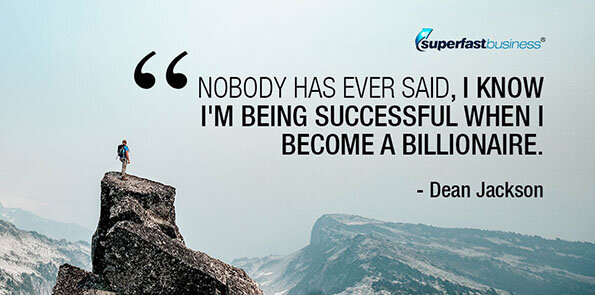 That was the big realization Dean had 21 years ago, going through the exercise of, I know I’m being successful, when… Having gone through that exercise with so many people, nobody in his experience has ever said, I know I’m being successful when I become a billionaire. Or when they have any set amount of money, for that matter.
That was the big realization Dean had 21 years ago, going through the exercise of, I know I’m being successful, when… Having gone through that exercise with so many people, nobody in his experience has ever said, I know I’m being successful when I become a billionaire. Or when they have any set amount of money, for that matter.
It’s an interesting thing, he says. And he uses success and happiness as, that’s what we’re really looking for. If you’re really looking for a life, that’s what the purpose of the business is for, to support or fund the life that you really want.
Dean doesn’t know a single billionaire that he would trade places with in any way.
John Butcher from Lifebook seems like he’s closer to having a good life, says James.
Dean agrees. And he knows lots of people worth $100 million or more that do have great lives like that.
The things people go through to succeed
James was taught by a multimillionaire client of his that there’s a sort of inescapable phase of having to crawl over broken glass to get to success. In his life, certainly, he had to put in a massive amount of effort and strain and stress and wear and tear to be where he is now.
Dean avoided that, he says, at some levels. He started out with a really healthy sense of purpose, knowing that he was going to keep his lifestyle below his means. He was leading with revenue. And that’s been a good thing, he thinks, because he never entered a situation where he escalated a lifestyle requiring him to make more and more money.
But then, Dean never had kids. That was James’s push to earn more at 23, and it put him in a long slog. That said, he doesn’t think he would have the life he did now if he didn’t have children. He feels everything that happened had to happen, because it did happen. And he’s just lucky he landed on his feet, in a way.
How James answers the $100 million question
One of the exercises Dean has been doing is a kind of hot, conversational exercise with people. What, chronologically, if he were to wire $100 million into your bank account, right now, how would that impact your life? Right now? Going forward? What would be the difference? What would be the impact of that?
Would it be the end of SuperFastBusiness? he asks James.
Definitely, says James. A hundred percent. No doubt about it. All he would do is surf, chat to friends, watch Netflix, read books, spend time with his kids.
He already surfs every day. He’d probably surf twice a day, if he had $100 million.
He would also work on his living environment, be inspired by some of the coffee table books he’s seen of people’s surfing houses.
He would still get on calls and do chats with people, but he might not do it in a formal structure or feel the need to publish it.
He would definitely invest in people. He naturally helps a lot of people, some who he doesn’t even charge. So that wouldn’t change. But he wouldn’t lose any sleep over not having to bother with it. And also, he would make sure that every single person in his team was absolutely looked after, even if he had them on board to putter around on stuff. He would make sure he found them all a fantastic place to work, give them a big bonus.
It wouldn’t be a selfish endeavor, James says. He thinks it would just enable him to lean into being even more organic, and less strategic.
“We want to be rich, we want to be happy, and we want to be healthy. Those are the three great pursuits that we have.”
Dean recalls seeing Naval Ravikant on the Joe Rogan podcast. Naval said, we all are basically looking for three things. We want to be rich, we want to be happy, and we want to be healthy. Those are the three great pursuits that we have. And of the three, money, getting rich, is one you can win. There’s an end to it.
Wealth, tick, says James. It’s all about happiness and health after that.
 Yes, says Dean. And that’s kind of an interesting thing. His approach to “I know I’m being successful…” and his approach to the day-to-day of it, is to realize that we can only spend today. And he might as well be crystal clear on the elements that would make up his day. How is he experiencing being successful on the day? And that, he says, has been such a guidepost for him.
Yes, says Dean. And that’s kind of an interesting thing. His approach to “I know I’m being successful…” and his approach to the day-to-day of it, is to realize that we can only spend today. And he might as well be crystal clear on the elements that would make up his day. How is he experiencing being successful on the day? And that, he says, has been such a guidepost for him.
The questions that comparison brings up
It’s been a thing, says Dean, that he and James would say they have very comfortable lives, and they’ve done well in business, and they’ve got multi-million dollar businesses. They’d be successful, in definition. And then there’s people that they know that have exited companies or sold things and have big chunks of money that they’ve gotten all at once. That is a different animal than what he and James have been pursuing.
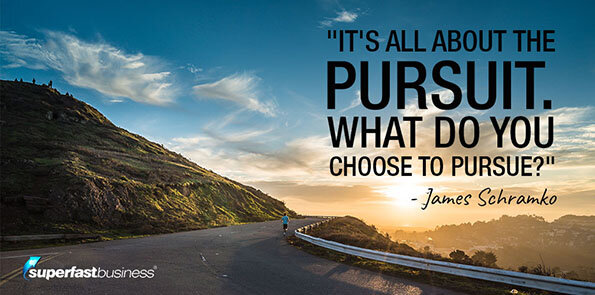 It’s all about the pursuit, says James. What do you choose to pursue? He’s totally happy with cutting a different path to the majority.
It’s all about the pursuit, says James. What do you choose to pursue? He’s totally happy with cutting a different path to the majority.
Dean feels he has a great life. It’s only in comparison that he might think, should he have, essentially, tried harder? Should he have really scaled something?
Comparison is natural, says James. He himself can’t help but curiously observe, how does something apply to him? We’re selfish at the core. How does that apply to me? What’s my takeaway from that? And so, a constant tuning of the machine.
Wait a minute, J. K. Rowling did it…
Getting to $100 million, says Dean, initially seems like a lot of work that takes more people and a more corporate kind of living. But then he started thinking, there’s J. K. Rowling. He was reading a magazine that said J. K. Rowling had just become a billionaire, and that she was the wealthiest self-made woman in the UK.
And then he started thinking about James Patterson. There are lots of writers, he realized, who have taken that path, or people who write movies. And so there’s a lot of creative people who have made lots of money without building a big organization, without scaling out.
J. K. Rowling had a massive build-up to that, though, says James. The challenges she had – her mom passing, a divorce…
While on the topic of Rowling, James mentions he may be married to one of the greatest Harry Potter fans on the planet. Even his daughter knows all the characters.
There was an HP toy of Dean’s, he says, that he could have smuggled home at his wife’s behest.
That’s funny, laughs Dean.
Time to wrap up (for now)
It’s that time again, James observes. But he’s happy with how the series is unfolding. Twenty-five episodes is their target, and they’ve just recorded number eight.
When will Dean see him next?
James would cautiously put it at the end of 2021, or of 2022.
That’s what Dean thinks.
2022 is more likely, says James; end of 2021 would be a 15 percent bet. But he can still speak to Dean, which he’s grateful for.
Yes, says Dean, they should do it more often.
As often as Dean wants, says James.
If you want to find out more about Dean, he has a program at emailmastery.com. It starts with an ebook download containing transcripts of three episodes of the I Love Marketing podcast. Those outline the core of Dean’s email conversion principles. That’s how people start in Dean’s world, by getting in his email world, and they take it from there.
Join the many entrepreneurs who have found success as JamesSchramko members
Liked the show? Leave us a review on iTunes
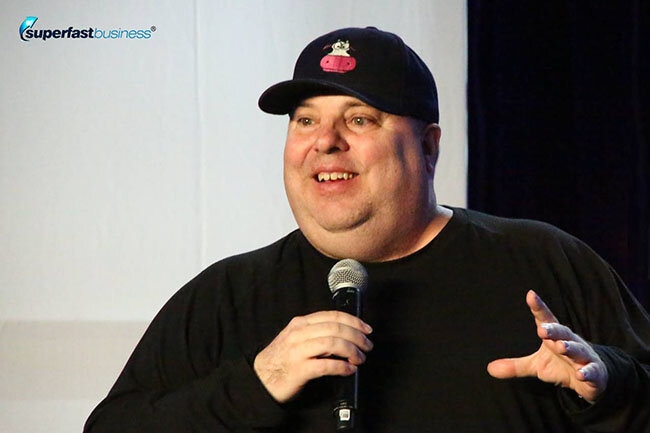
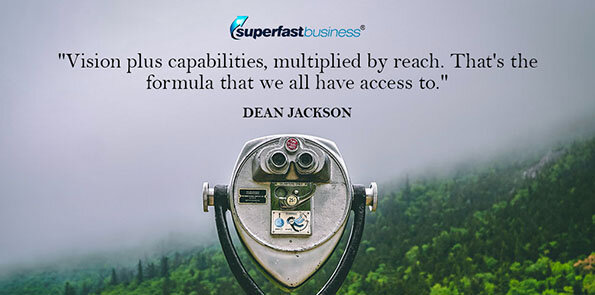
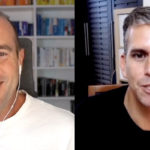


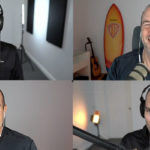





Leave a Reply